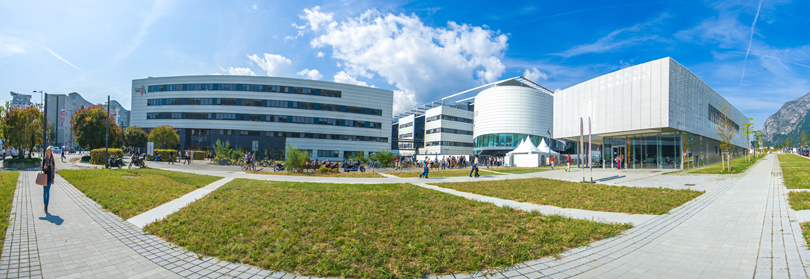Volumes horaires
- CM 28 h
Objectif(s)
The objective is to introduce basic knowledge of Materials Science, required to understand materials behaviour in Nuclear Plants
Muriel VERON, Catherine TASSIN
Contenu(s)
The course is divided into two main parts :
Microstructure of alloys and their specificities
Materials Mechanical behaviour
During all the lectures, stress will be put on the interaction between microstructures and mechanical properties, and the basis of corrosion and electrochemistry will be introduced.
Alloy microstructures and their specificities (18h)
- Introduction to phase diagram : Definition, binary phase diagram, introduction to ternary phase diagram
- Defects : vacancies and interstitials, screws and edge dislocations and grain boundaries
- Diffusion mechanisms and diffusion equations
- Phase transformations : driving forces, liquid and solid phase transformations, TTT-TRC curves
- Microstructures : basic of crystallography (texture)
- Recovery and recrystallization
- Tutorials (8h) : Observations and characterisation techniques (TEM, SEM ...), applications to some selected materials
Materials Mechanical behaviour (10h)
- Plastic deformation: Dislocations mechanisms, hardening mechanisms (Schmidt law)
- Basics of continuum mechanics (stress, strain), introduction to finite element method
- Creep of metals and alloys: mechanisms and constitutive equations
- Fracture : brittle fracture, Fracture toughness, K1c
- Mechanical fatigue
Module P3 : General operation of nuclear reactors
written exam
september
M.Ashby, D.Jones : Matériaux, volumes 1 et 2, Dunod (ed.anglaise: Pergamon Press)
W.Kurtz, Traité des matériaux, vol 1, Presses Universitaires de Lausanne



